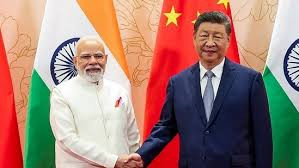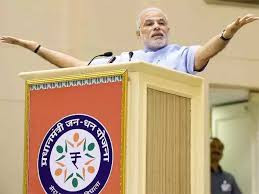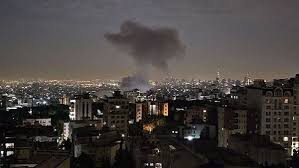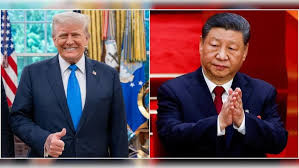The Cold War of Diplomacy Between India and Bangladesh: Unraveling Tensions in South Asia

The diplomatic relationship between India and Bangladesh, two neighboring countries with shared historical, cultural, and economic ties, has recently come under strain, reflecting a subtle yet noticeable "Cold War" of diplomacy. While the two nations once celebrated their partnership, the emergence of several contentious issues has led to rising tensions and an increasingly complicated relationship. What once seemed like a robust alliance now finds itself mired in challenges that are increasingly difficult to resolve.
At the heart of these growing diplomatic challenges is the handling of key regional issues. One of the most significant points of contention lies in India's controversial Citizenship Amendment Act (CAA) and the National Register of Citizens (NRC). For Bangladesh, these policies have become a flashpoint of concern. The CAA, which offers citizenship to religious minorities from neighboring countries, excluding Muslims, has sparked widespread criticism in Bangladesh. Dhaka sees the Act as discriminatory and fears it could lead to an influx of refugees, straining its already fragile resources.
While India insists that the CAA is an internal matter designed to protect vulnerable minorities, Bangladesh perceives it as a potential destabilizing force in the region. The NRC, particularly in Assam, has fueled these fears, as the process excluded many Bengali-speaking Muslims, some of whom may have familial ties to Bangladesh. This situation has created a diplomatic rift, with Bangladesh expressing its dissatisfaction over India's handling of its Muslim population.
Another major point of friction is the longstanding issue of water-sharing. The Teesta River, which flows through both India and Bangladesh, has long been a source of tension. Bangladesh relies heavily on the Teesta for its agricultural sector, yet negotiations to secure a fair distribution of the river's waters have stalled. Despite years of dialogue, no final agreement has been reached, leaving Bangladesh vulnerable during dry seasons when water availability becomes scarce. India, on the other hand, faces internal political challenges, particularly from the state of West Bengal, where the local government has been reluctant to endorse a water-sharing agreement.
The diplomatic impasse over the Teesta River highlights the deep complexities of bilateral negotiations. For Bangladesh, the lack of resolution represents not just an environmental issue but a threat to its agricultural stability. India’s internal political landscape, marked by diverse regional interests, complicates any solution to the water-sharing issue. Until a mutually agreeable solution is found, tensions are likely to persist.
Trade and economic issues also play a role in the increasingly cold diplomatic climate. Although trade relations between India and Bangladesh have traditionally been strong, Bangladesh has become increasingly vocal about its growing trade imbalance with India. The flow of goods between the two nations has heavily favored India, causing dissatisfaction in Dhaka. Bangladesh has called for a more equitable trade relationship, with a focus on improving access to Indian markets for Bangladeshi products. While both nations benefit from strong economic ties, these imbalances have led to growing frustration.
In addition, border security remains an ongoing concern. India and Bangladesh share a long border, which has been the site of frequent disputes and clashes. Smuggling, illegal immigration, and cross-border terrorism have been recurring issues for both countries. While both nations have taken steps to secure the border, incidents involving violence or mistreatment of citizens by border security forces have caused diplomatic ripples, further eroding trust between the two governments.
The growing diplomatic chill between India and Bangladesh raises critical questions about the future of their relationship. Both nations must recognize the need for cooperation and dialogue to address the pressing issues that divide them. The stakes are high, not just for the two countries, but for the broader South Asian region. As the global landscape shifts, regional cooperation and peace are becoming ever more important. It is crucial for India and Bangladesh to rebuild their diplomatic ties through meaningful engagement, finding solutions to the issues that separate them while working to strengthen the regional order.
In conclusion, the cold war of diplomacy between India and Bangladesh is emblematic of the complex nature of international relations in South Asia. While historical ties and cultural connections remain strong, unresolved political, economic, and environmental issues have cast a shadow over their relationship. Both nations must navigate these challenges carefully, finding common ground to restore the warmth that once defined their alliance. The future of India-Bangladesh relations depends on their ability to confront their differences with diplomacy, compromise, and mutual respect.
You might also like!















